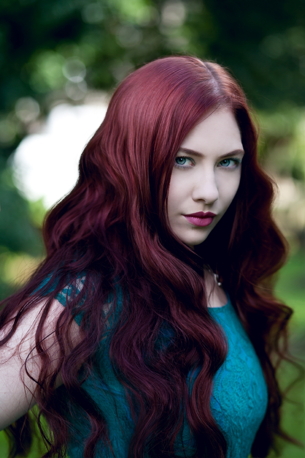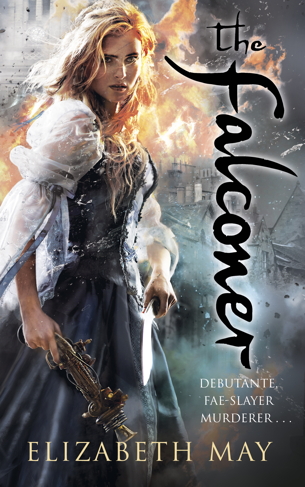The Edinburgh-based debut author talks about her new historical fantasy

What makes The Falconer different from other historical fantasy novels?
The Falconer is set in an alternate Edinburgh in 1844, about a young noblewoman who hunts and kills faeries in secret.
While fantasy often includes mythological creatures in urban settings, what makes The Falconer different is that the basis of the story is grounded in Edinburgh’s own urban folklore. I didn’t merely add creatures from legend into what I thought would be a cool setting. I was actually inspired by stories of faery sightings here in the city – the most famous being "The Fairy Boy Of Leith", about a little boy who was drummer for the fae. So the book itself is very much rooted in Scottish folklore, which is rather neglected in urban fantasy despite its rich cultural history.
Lead character Aileana doesn’t just fight fae, she’s an inventor as well. What inspired this side to her?
As a human, Aileana would be slower than the fae in hand-to-hand combat – especially while training. So when plotting for the book, I had to consider how she managed to stay alive while fighting creatures who are superior in strength and speed. It was just a logical step for me to turn a hobby of invention into one required for survival. She does use blades from time to time, but her invented weaponry gives her an added advantage.
How much of the mythology of the fae in The Falconer is drawn from folklore, and how much did you invent yourself?
Most of the groundwork came from folklore. The fae featured in the novel all existed in stories, the vast majority of which I pulled directly from Scottish folktales. As far as inventing goes, I filled in the gaps between lore to create a more cohesive, shared fae culture. So I invented a shared past, social structure, their strengths and weaknesses, etcetera. Part of that included the sith-bhrùth (though I didn’t make up the word; translated, it means a faery residence, or faeryland), and how I imagined it would look and be structured according to the hierarchy I came up with.
The Falconer is the first book in a trilogy – can you give us any clues about what’s to come in the next two books?
The fae were imprisoned under Edinburgh for a reason. The next two books are about what happens when they’re freed.
As a first-time author, how easy or difficult did you find it to get published?
After I wrote The Falconer , I had an easy go of it. I signed with my agent in August 2011 and we sold the book in October 2011. But that was after years and years of writing, and it definitely wasn’t the first manuscript I queried to agents, so it was a pretty long time coming.
Get sneak previews, exclusive competitions and details of special events each month!
Was this your first attempt at writing a novel, or are there others hidden away in a drawer somewhere, never to see the light of day?
The Falconer is my 10th manuscript, so I have nine more sitting in a drawer. I hope they never see the light of day, because they are truly abysmal. But! They were great stepping-stone novels, and I enjoyed writing them.
You’ve been a model for book covers in the past – were you tempted to model for your own book?
No, not at all. I think authors get accused enough of inserting themselves into novels, so it would be pretty weird (and awkward) if I modelled for a character I wrote.
You’re originally from California and now live in Scotland. How do you think those two sides of your life have fed into the novel?
One thing, really, is that I do get seasonal depression here in Scotland, and have for years. It wasn’t something I ever experienced in California (for obvious reasons), so when I moved here, there was a noticeable shift in my writing to exploring darker themes.
I wrote the bulk of The Falconer during a particularly bad bout of winter depression in 2010 (to this day, I think of it as the worst I’ve ever had) which I’m sure influenced how I wrote Aileana’s voice and the book itself, as it’s set during the week of midwinter.
Can you describe how you write?
Living room, windows open ( especially if it’s raining – that’s my favourite), fireplace going. Mid-afternoon. I start with Einaudi to calm me down, and gradually turn up something like The Birthday Massacre to finish off a session. Bliss.
The Falconer is out now from Gollancz. And you can go on a tour of Edinburgh with the author right here:

SFX Magazine is the world's number one sci-fi, fantasy, and horror magazine published by Future PLC. Established in 1995, SFX Magazine prides itself on writing for its fans, welcoming geeks, collectors, and aficionados into its readership for over 25 years. Covering films, TV shows, books, comics, games, merch, and more, SFX Magazine is published every month. If you love it, chances are we do too and you'll find it in SFX.


